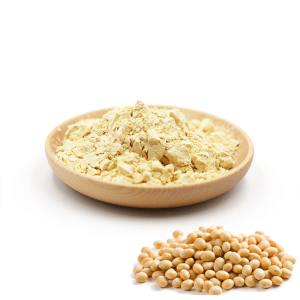
Keyword: Soy Fiber
# Soy Fiber: A Sustainable and Nutritious Dietary Supplement
## Introduction to Soy Fiber
Soy fiber, derived from the soybean plant, is gaining popularity as a sustainable and nutritious dietary supplement. As more people seek plant-based alternatives to traditional fiber sources, soy fiber stands out for its impressive health benefits and environmental advantages.
## Nutritional Profile of Soy Fiber
Soy fiber is packed with essential nutrients that make it a valuable addition to any diet:
– High in dietary fiber (both soluble and insoluble)
– Rich in plant-based protein
– Contains essential amino acids
– Low in fat and calories
– Provides important minerals like iron, calcium, and magnesium
## Health Benefits of Soy Fiber
### 1. Digestive Health Support
The high fiber content in soy fiber promotes regular bowel movements and supports a healthy digestive system. The insoluble fiber adds bulk to stool, while soluble fiber helps maintain gut microbiome balance.
### 2. Heart Health Promotion
Regular consumption of soy fiber has been linked to:
– Lower LDL (bad) cholesterol levels
– Reduced blood pressure
– Improved overall cardiovascular health
### 3. Blood Sugar Regulation
Soy fiber helps slow down carbohydrate absorption, leading to more stable blood sugar levels. This makes it particularly beneficial for individuals with diabetes or those at risk of developing the condition.
## Environmental Sustainability
Soy fiber production offers several environmental advantages:
– Lower carbon footprint compared to animal-based fiber sources
– Requires less water than many other crops
– Soy plants help fix nitrogen in soil, reducing need for synthetic fertilizers
– Biodegradable and compostable
## How to Incorporate Soy Fiber into Your Diet
Adding soy fiber to your daily meals is simple and versatile:
– Mix soy fiber powder into smoothies or shakes
– Use as a flour substitute in baking (replace 10-15% of regular flour)
– Add to soups, stews, or sauces as a thickener
– Sprinkle over cereals or yogurt
– Incorporate into homemade energy bars or protein balls
## Potential Considerations
While soy fiber is generally safe for most people, there are a few things to keep in mind:
– Some individuals may experience mild digestive discomfort when first increasing fiber intake
– People with soy allergies should avoid soy fiber
– Always increase fiber intake gradually and drink plenty of water
– Consult with a healthcare provider if you have specific dietary concerns
## Conclusion
Soy fiber represents an excellent choice for those seeking to improve their nutrition while supporting sustainable food systems. With its impressive health benefits, environmental advantages, and culinary versatility, soy fiber deserves consideration as part of a balanced, health-conscious diet. Whether you’re looking to boost your fiber intake, support digestive health, or make more eco-friendly food choices, soy fiber offers a practical and nutritious solution.